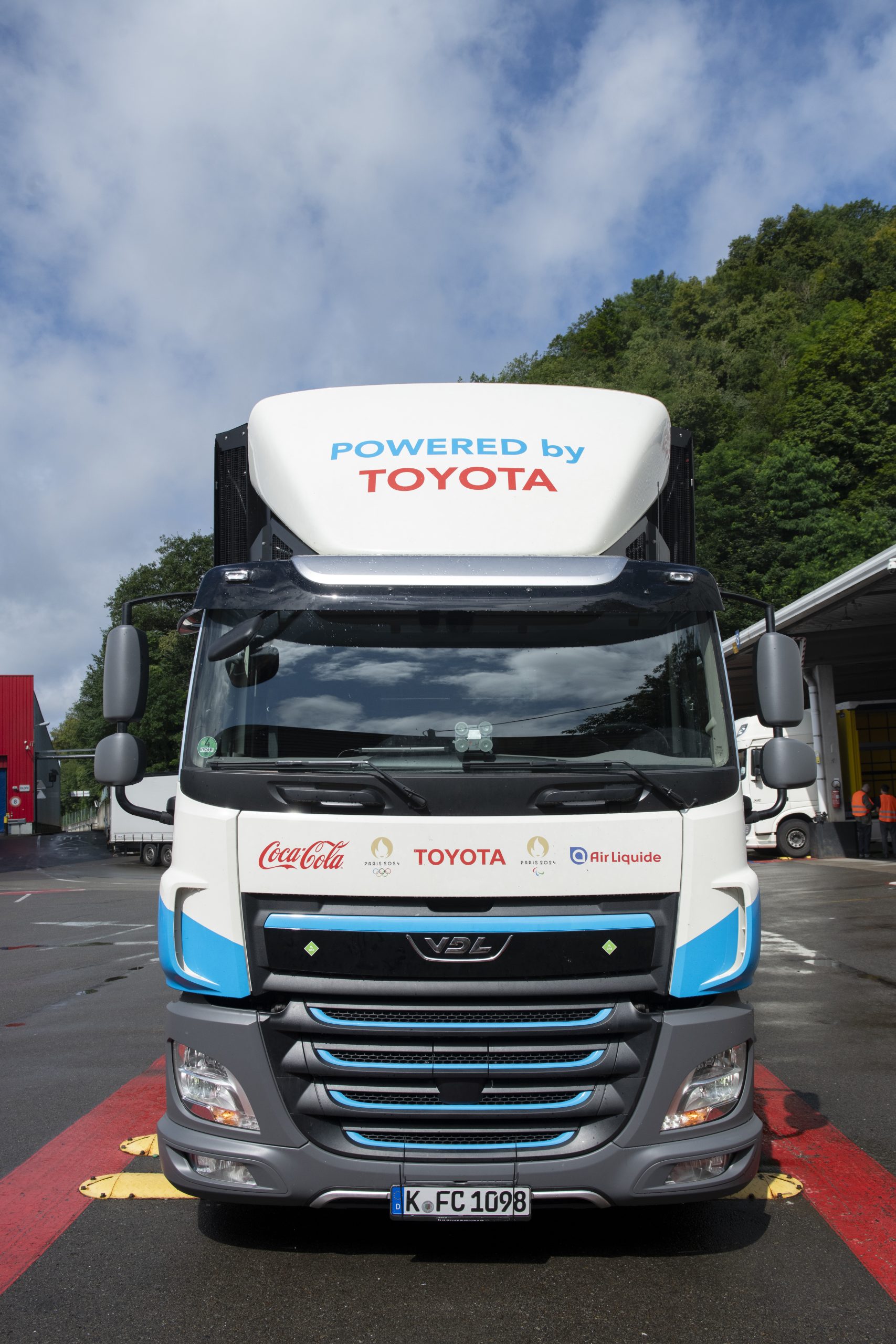Toyota, Coca-Cola, and Air Liquide Collaborate on Zero Emission Hydrogen-Fuelled Truck Pilot Programme
Key Ideas
- Toyota, Coca-Cola, and Air Liquide are partnering to test a hydrogen-fuelled truck for long-distance logistics, aiming to reduce carbon footprint.
- The proof-of-concept vehicle uses a fuel cell system that produces only water as a tailpipe emission and allows for fast refuelling.
- Air Liquide supplies hydrogen sourced from renewables, highlighting the importance of vehicle and infrastructure development for sustainable hydrogen usage.
- The collaboration aligns with Toyota's goal of supporting carbon-neutral societies, with plans to achieve zero tailpipe carbon emissions in logistics operations by 2040.
Toyota, Coca-Cola, and Air Liquide have initiated a pilot programme to test a new hydrogen-fuelled truck for long-haul transportation, focusing on reducing carbon emissions. The proof-of-concept truck utilizes a fuel cell system that combines hydrogen and oxygen molecules to produce electricity and water, offering the advantage of zero tailpipe emissions besides quick refuelling capabilities.
Air Liquide, a clean energy leader, is providing renewable-sourced hydrogen for the project, emphasizing the importance of both vehicle technology and infrastructure development for sustainable hydrogen utilization. This joint effort aligns with Toyota's commitment to promoting carbon-neutral societies, especially in Europe, where heavy-duty road transport contributes significantly to freight operations.
The collaboration aims to demonstrate the effectiveness and viability of hydrogen fuel cell technology for heavy-duty logistics, with the potential to mitigate the carbon footprint of commercial trucks. Partners like Coca-Cola and Air Liquide express their commitment to energy transition and sustainability, recognizing hydrogen as a suitable solution for long-distance transportation due to its flexibility and productivity.
Toyota's broader vision encompasses the implementation of hydrogen technology across various sectors beyond passenger cars, extending to trucks, buses, trains, and stationary generators, among others. The insights gained from these pilot projects are crucial steps towards achieving zero tailpipe carbon emissions in logistics operations by 2040. The collaboration stands as a testament to the shared commitment of the involved parties towards sustainable mobility and environmental stewardship.
Topics
Automotive / Trucking
Renewable Energy
Sustainability
Transportation
Fuel Cell Technology
Collaboration
Logistics
Carbon Footprint
Latest News
